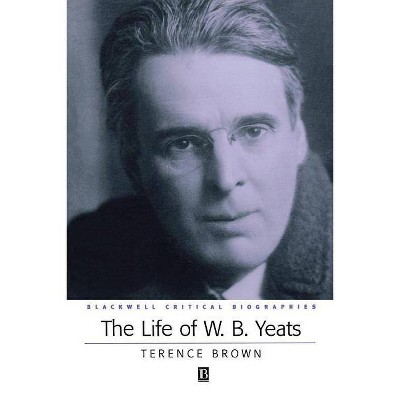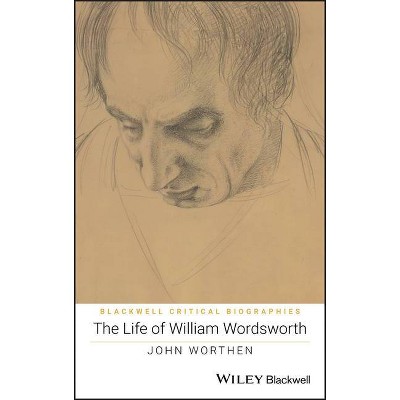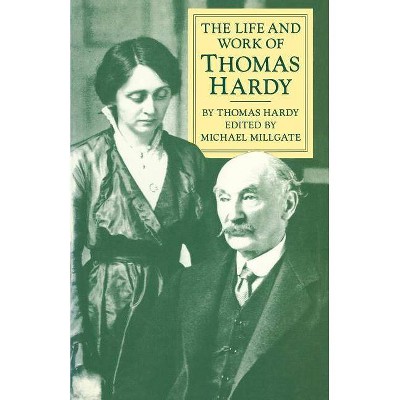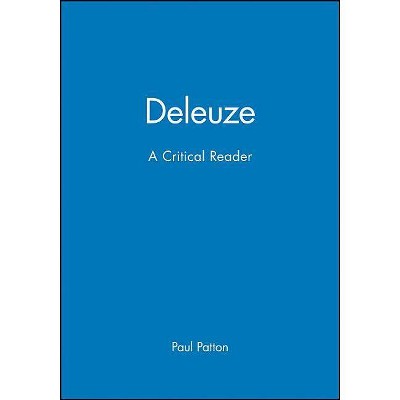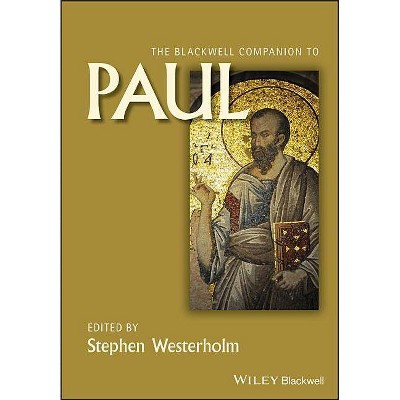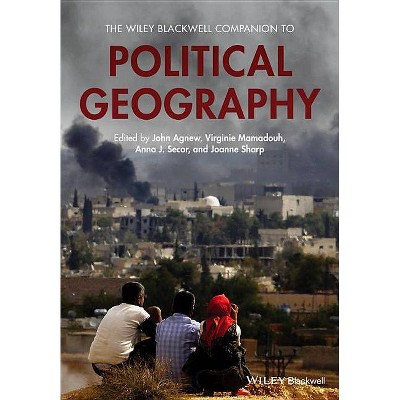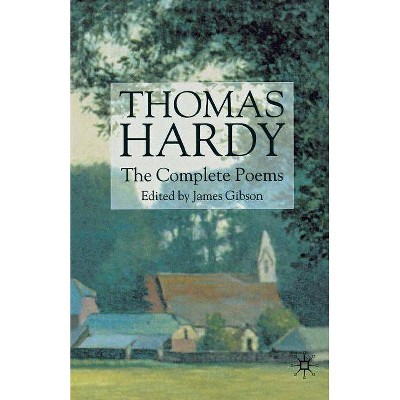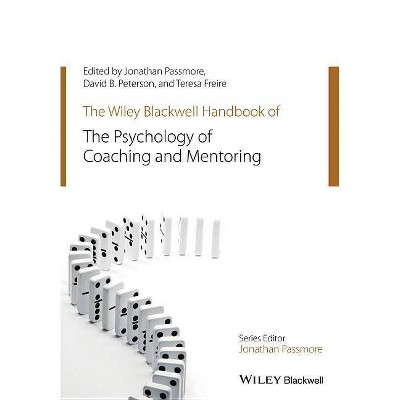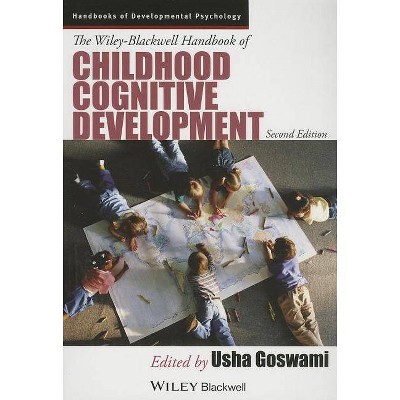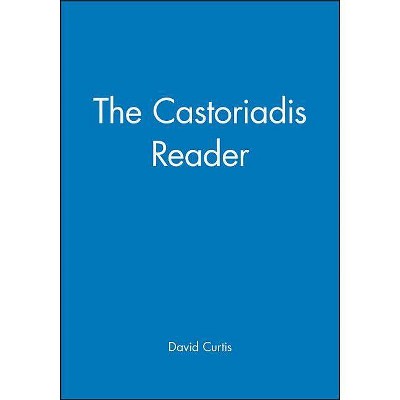The Life of Thomas Hardy - (Wiley Blackwell Critical Biographies) by Paul Turner (Paperback)
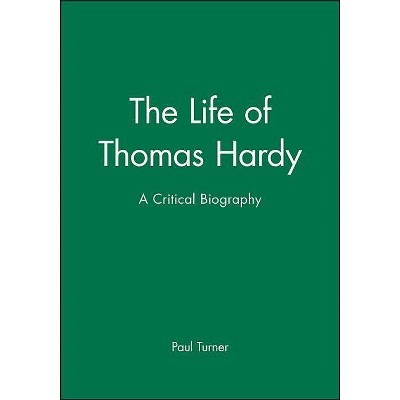
Similar Products
Products of same category from the store
AllProduct info
<p/><br></br><p><b> Book Synopsis </b></p></br></br>Turner's strikingly original and penetrating account of Hardy's extraordinarily creative life and longevity offers a series of thirty-two chapters, each of which relates the biographical and literary background of a single work.<p/><br></br><p><b> From the Back Cover </b></p></br></br>Thomas Hardy's professional career was a triumph of self-help. Born the son of a village stonemason and a cook, he made himself the best-known English author of his day. He began with a course of self-education. Leaving school at sixteen, he taught himself Greek, and read Greek and Latin poetry between five and eight every morning, before walking three miles to work in an architect's office. <p>His private life was less unusual. Like most people, Hardy had problems with sex, money, health, morale, marital and social relationships, ageing, and bereavement. Outwardly uneventful, his personal life was interesting chiefly as raw material for his writings. Other material came from his extensive and varied reading, not least in classical literature, which Paul Turner, himself a classicist, shows to have played a key part in Hardy's work as both novelist and poet. The profound influence upon Hardy, not only of Greek and Roman epic, Greek tragedy (and a late Greek novel), but also of Shakespeare, Milton and the Victorian poets, figures prominently here, as too does the literary value for him of his practical knowledge of music.</p> <p>Turner's strikingly original and penetrating account of Hardy's extraordinarily creative life and longevity offers a series of thirty-two chapters, each of which relates the biographical and literary background of a single work.</p><p/><br></br><p><b> Review Quotes </b></p></br></br><br>... his method has much recommended it. The useful book contains illustrations and notes and is recommended for all academic libraries. <i>Choice</i> <br /> <p>This is a very intriguing and useful work. The result is a book of great interest at various levels, and of value to a range of readers. Students at all levels will find much closely argued material (and meticulously referenced throughout) to help interpretation of the author and his works. Those of us who think we know the man and his work will find new ways of looking at and interpreting the already familiar. This is an intriguing and useful work which opens many new avenues into and through Hardy and his work, both the novels and the poetry. It makes a useful addition to a scholarly series, although this volume at least (I cannot speak for any of the others since I have not read them) has much to offer any interested reader. It is recommended for any literature collection. <i>Languages and Literature</i><br /> </p> <p>Although it does, indeed, contain a great deal of interesting biographical material this new <i>life</i> has an important new dimension. It explores in considerable detail Hardy's use in his writing of his wide and erudite background of reading. The book is full of instances of Turner's insight into the influence of Hardy's reading on his writing, {and} adds substantially to our knowledge of Hardy's creative methods. <i>The Thomas Hardy Journal</i><br /> </p> <p>For a <i>critical biography</i> so largely concerned with Hardy's reading, Paul Turner has proved an excellent choice. He brings to his task an intimate familiarity with the classical texts to which Hardy's imagination recurred. Turner renews one's sense of Hardy's writing as at once more spirited and artful and gnarled than a reader is ever quite prepared for. <i>The Review of English Studies</i><br /> </p> <p><br /> </p> <p>Turner has an admirably broad view of Hardy and literary tradition: he is learned and interesting on Hardy's relation to English and classical tradition, particularly Tennyson, Browning, Greek tragedy and Horace. The pace is brisk, and the tone is often pleasingly crisp, with Turner unafraid to offer a judgement on issues like the tiredness of parts of 'The Dynasts' or the intellectual extremity of some of Hardy's satires. <i>Tim Armstrong, Victorian Poetry</i><br /> </p> <p>'The Life of Thomas Hardy' is an original, radical biography. This critical biography reveals much about Hardy's thinking and feeling and even more about his creative methods. <i>Day by Day</i></p><br><p/><br></br><p><b> About the Author </b></p></br></br><b>Paul D.L. Turner</b>, Emeritus Fellow of Linacre College, Oxford, read Classics and English at Cambridge University, and was formerly a University Lecturer in English at Oxford University. He contributed <i>Victorian Poetry, Drama, and Miscellaneous Prose 1832-1890</i> to the Oxford History of English Literature, and his many other publications include translations of <i>Daphnis and Chloe, </i> Lucian's<i> Satirical</i> and Thomas More's <i>Utopia.</i>
Price History
Price Archive shows prices from various stores, lets you see history and find the cheapest. There is no actual sale on the website. For all support, inquiry and suggestion messages communication@pricearchive.us
